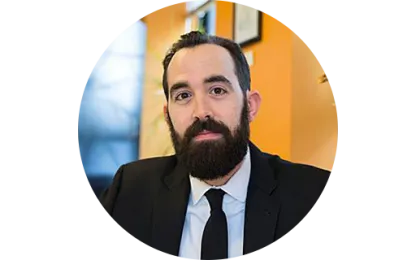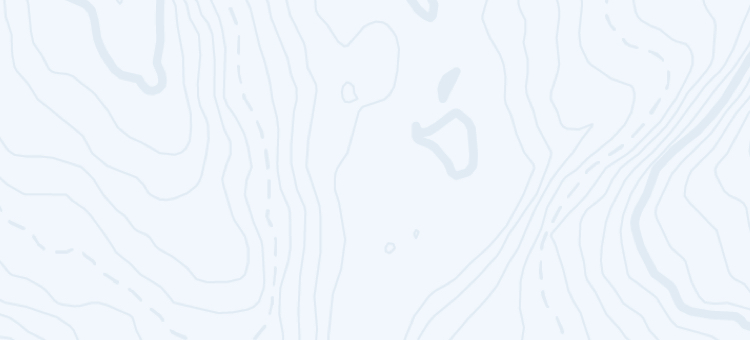Breadcrumb
Philanthropy Manager, The Barbara Bush Children’s Hospital & Co-Founder, Sad Dads Club
Years as a camper: 4 summers + 1 CILT
Staff: Motorboating (2 summers)
Current profession: Philanthropy Manager, The Barbara Bush Children’s Hospital & Co-Founder, Sad Dads Club
Tell us about what you’re working on professionally? Since January 2022 I’ve been working at The Barbara Bush Children’s Hospital as their Philanthropy Manager. I think people inherently understand the never-ending need for funds at a hospital. But I love actualizing the impact for donors. Telling the story of the difference that their support makes. It's easy to invest emotionally in the cause. So far, it’s been great.
A passion project, soon to be turned official 501©3, that I’m heavily invested in is Sad Dads Club. My wife and I lost our daughter, Lila, five years ago. She was delivered stillborn on December 13, 2017. Meeting her (holding her, singing to her, kissing her) and immediately having to say goodbye was, and continues to be, really complicated for me. Since she passed away, I’ve connected with other dads in similar situations. I had the fortunate misfortune of having a close friend from college who suffered the same tragedy 11 months earlier. Then, the two of us were put in touch with another dad in Maine who’d also had a stillborn daughter. The three of us became an outlet for one another, and that connection inspired us to create a support group for loss dads (though, anyone is welcome) all over the US and beyond. Our aim is to eliminate alienation for loss dads as they navigate their grief journeys. Feeling alone as you grieve is dangerous, and there hasn’t been anything out there catered toward dads who’ve lost children. We knew we could create a unique, and needed, space – a community. We’d conceptualized Sad Dads Club for years but it launched formally on March 1, 2022 with a website (www.saddadsclub.com) and Instagram (@sad.dads.club). We also have a twice monthly “Loss Dads Open Hour” via Zoom that has evolved into an incredible group of profoundly supportive, and insightful, loss dads. It really has blossomed into a community. It’s rewarding, emotionally heavy, and therapeutic. We want to break the stigma that men must be tough – meaning they can’t openly mourn or grieve. Feeling sad doesn’t make you weak. No one should suppress genuine feelings, ever.
How did your time at Camp help grow your emotional intelligence and desire to find connection? You get into a rhythm at Camp Sea Gull. That groove you feel by the end of week 1 is undeniable. You're settled in and starting to connect with one another on a level beyond musical or athletic interests. It becomes a place that’s comfortable and feels like home – you're sandy and sweaty all the time, and that feels good. Then, you get into more serious devotions and your cabinmates let you in on a deeper level. I think those devotions created moments where collective cohesion was palpable, and that’s a uniquely special experience.
Young dudes often feel as though it’s not cool or OK to be emotionally vulnerable or to share their difficult personal experiences. When they do open up, and that openness is met with support from cabinmates, a bond is unlocked. That’s exactly what I'm doing now, creating a supportive space with Sad Dads Club. A space that invites openness and vulnerability. A space where you feel certain that you’re not the only one struggling through something. And a space where you can feel certain that you have the support of those around you – your neighbor or your bunkmate or your cabin mate. What an interesting parallel.
Do you have a particular devotion that was impactful to you? Our last devotion when I was in Cabin 29 (Camp II – “silver, and black: camp II pack attack, HEY!”) – “What was the best day of your life, and what was the worst day of your life?” Interestingly, I adopted this devotion theme when I became a counselor, but did it a little earlier in the session. It was amazing as a camper. I remember people sharing things that were so intensely personal. The willingness of my cabinmates to be so open was unlike anything I’d experienced as an 11-year-old dude at that point. When you create a space where people can share that type of thing, it blows the proverbial doors off all expectations and stereotypes. The willingness for someone to be that open about their life is an invitation for connection amidst a group. I still remember being out on the dock during that devotion. There were tears, there were hugs, and there was a greater understanding of how complicated and difficult life can be for some people. It was beautiful and, honestly, a bit surreal.
What skills, values or lessons have you taken with you from Sea Gull that have aided your work? The importance of community. The people I connected with at Camp had a lasting impact on me. I understand that everybody has something of value to offer and the power of what people can do together is important. I remember becoming so incredibly attached to and fond of the people I met at Camp. Camp encourages you to be a genuine, thoughtful, and considerate human being. Work hard, be nice, embrace your neighbor, and create that community that you want to be a part of.
Who did you see as mentors or role models during your time at Camp? Ray Mao and Dave Stolldorf are two close friends of mine to this day. I just think the world of them. I can’t imagine not knowing them. They were peers when we were counselors and made everything immensely enjoyable (and hilarious). Brandon Blackman was a leader on motorboating and nailed it when it came to creating the right balance of laughter and professionalism. He took his role seriously, inspired others to do the same, and made sure we were having fun. Kind of the perfect boss if you ask me.


